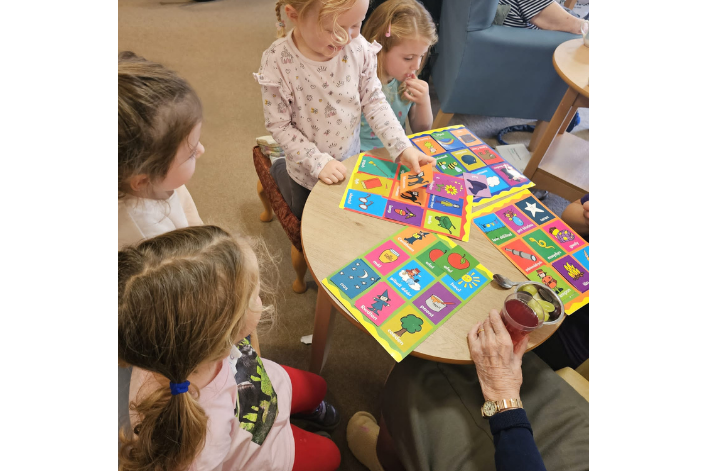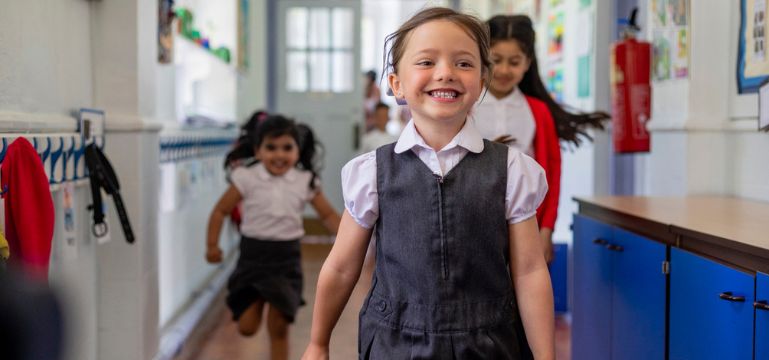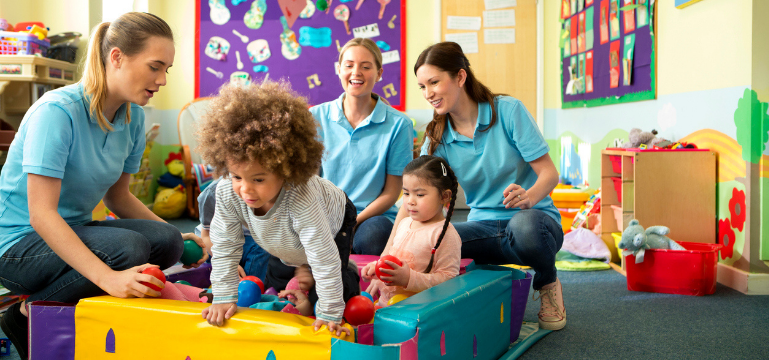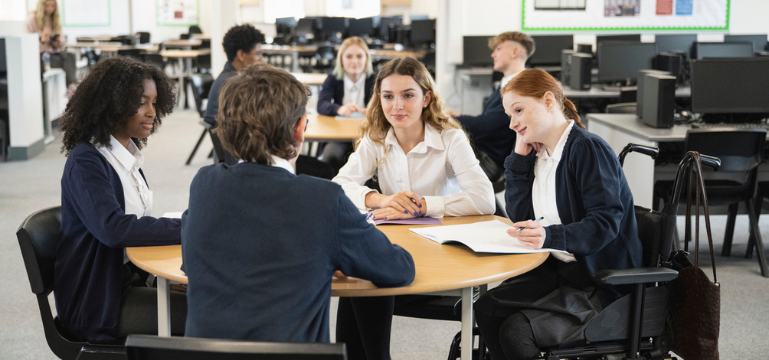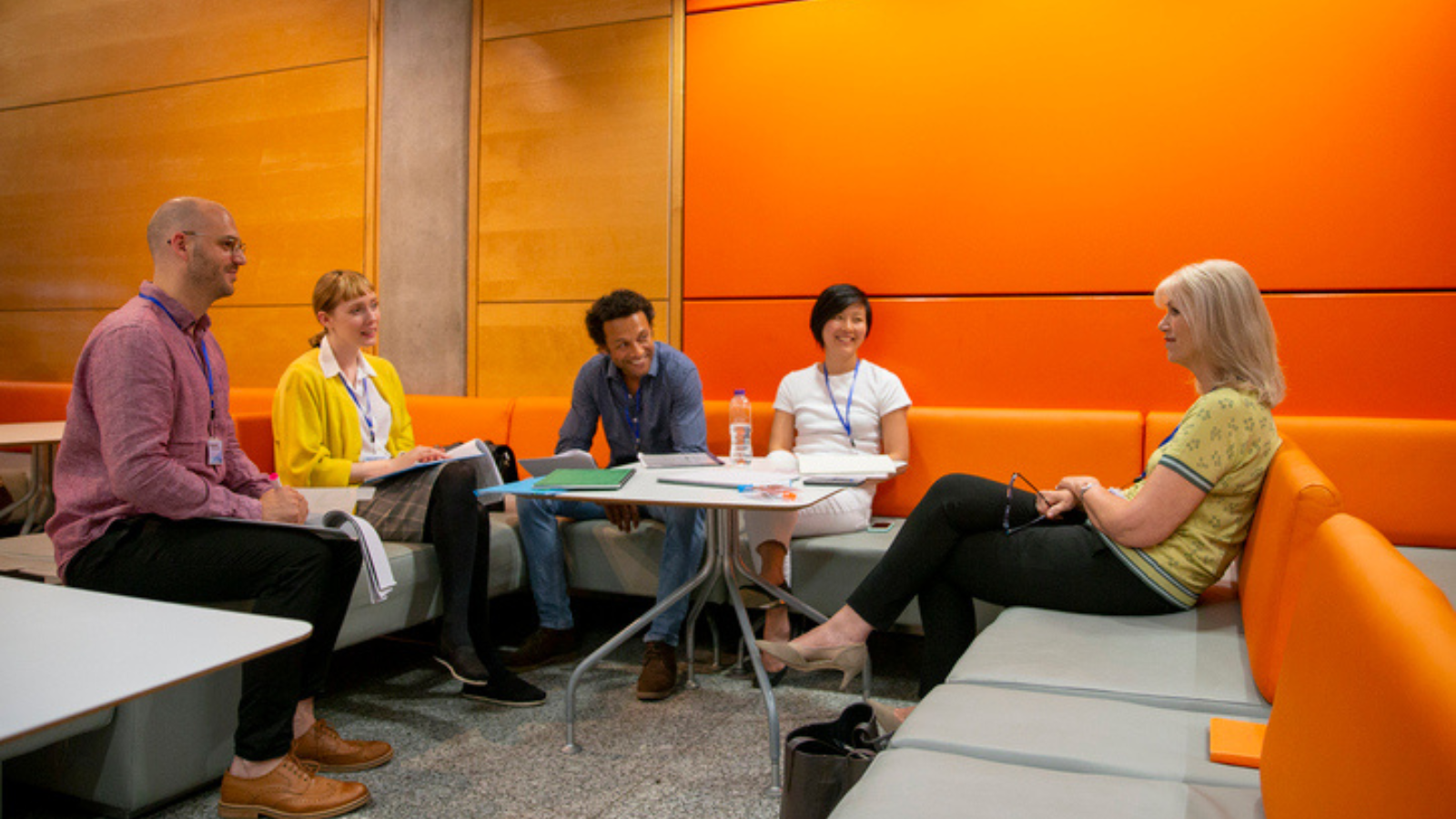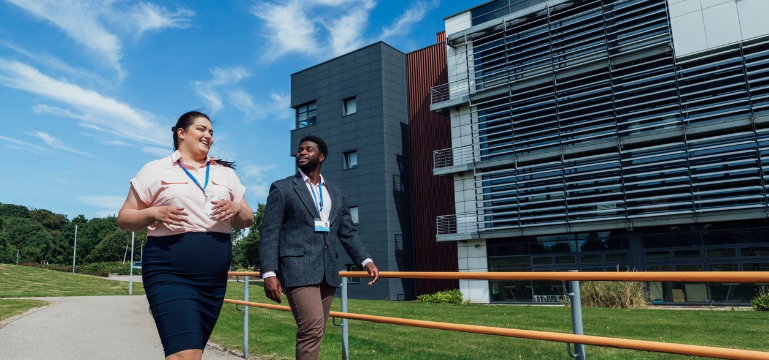
Information about the setting
The setting is a Welsh-medium early years setting based within Ysgol Bro Alun in Gwersyllt, Wrexham. It is registered to care for up to 57 children aged two to four years, and provides a warm, nurturing environment where children are supported to develop through play and purposeful learning experiences.
The setting offers a range of funded childcare options, including Early Education, Flying Start, and the Childcare Offer for Wales, ensuring accessibility and flexibility for local families. Its provision supports a strong foundation for learning, delivered entirely through the Welsh language, and caters to both Welsh-speaking and non-Welsh-speaking families.
The setting operates Monday to Friday, from 08:05 to 17:10 during term time, providing full-day care to meet the needs of working families while maintaining a strong educational focus.
A dedicated team works in close partnership with parents, the local school, and wider agencies to ensure that all children are given the best possible start in their early learning journey.
Context and background to the effective or innovative practice
Five years ago, the setting made a conscious shift towards more sustainable and child-centred practices by replacing plastic toys with natural resources. This change was rooted in a desire to create a more engaging and environmentally conscious learning environment. By introducing natural materials, authentic resources and loose parts, practitioners provided children with open-ended opportunities that encourage creativity, exploration, and problem-solving.
The approach has consistently focused on promoting each child’s independence and supporting their individual interests and development. This is achieved by closely observing children and tailoring experiences to help them build skills unique to their personal learning journey.
A key element of practice is the consistent use of both indoor and outdoor environments. The outdoor facilities are used daily, enabling children to benefit from fresh air, physical activity, and connection to nature. The setting has embedded community engagement into its curriculum, regularly taking children out into the local area to enrich their understanding of the world around them.
Overall, innovative use of natural materials, emphasis on individual development, and integration of indoor, outdoor, and community-based learning have created a dynamic and responsive early years setting that supports holistic development and creates a lifelong love of learning.
Description of nature of strategy or activity
The learning environment is a key strength of the setting. Practitioners work diligently to create attractive, welcoming, and purposefully designed spaces that allow children to thrive. They ensure that the doors to the outdoor area remain open throughout the session, giving children the freedom to choose where they would like to play. This seamless flow between indoors and outdoors supports independence and allows for a broader range of learning experiences.
The provision is shaped by daily observations of the children and their evolving interests. Practitioners continuously adapt and enhance the learning areas to reflect what engages the children most. For example, when a growing interest in washing objects emerged, practitioners enriched the water play area with soap, sponges, and dirty dishes – turning a simple fascination into a learning-rich experience that encouraged role-play, communication, and problem-solving.
The learning environment is filled with open-ended, authentic resources such as real tools, natural materials, paint, fresh vegetables, and digital equipment. These are positioned at child level to ensure that children can access them independently and use them in creative, imaginative ways. Practitioners also place great emphasis on risk-taking and physical development. Children regularly explore balance beams, tunnels, and climbing equipment, and are encouraged to use woodwork tools under supervision – developing both fine and gross motor skills in a safe, supportive setting.
Displays around the room celebrate the children’s work and help to build a sense of pride and belonging. Practitioners showcase the children’s artwork and photographs of them with their families, reinforcing their identity and the importance of their contributions to the community.
The setting believes that a truly effective learning environment is one that listens to the children. The team carefully records observations and uses this information to plan future activities that remain relevant, challenging, and fun. By doing so, they ensure that the provision grows alongside the children and continues to reflect their individual journeys and fascinations.
What impact has this work had on provision and children’s standards?
Children at the setting are highly engaged, motivated, and confident in their learning. By shaping provision around their interests and ideas, practitioners build a strong sense of ownership in their learning journey. This has led to:
- increased independence and decision-making, as children are encouraged to choose resources and direct their own play
- enhanced physical and creative development, with access to a wide range of open-ended resources and outdoor challenges that promote gross and fine motor skills
- stronger communication and social interaction, as children collaborate, negotiate, and problem-solve together in play-based contexts
- effective skill development across the curriculum, with meaningful opportunities to build literacy, numeracy, digital, and practical life skills in context
The environment has also supported children in becoming resilient, confident learners, willing to take risks and try new experiences, such as using real tools or climbing challenging equipment – all in a safe and encouraging setting. Practitioners are highly responsive, flexible, and creative in how they prepare and adapt learning spaces. This has led to:
- high-quality, purposeful continuous provision, indoors and outdoors, which remains fresh, relevant, and engaging
- stronger practitioner confidence and collaboration, as staff use daily observations to inform planning and assess development meaningfully
- an inclusive and reflective practice, ensuring that all children, regardless of ability or background, are seen, heard and supported
By valuing the child’s voice and celebrating their work throughout the setting, practitioners create a sense of pride and partnership with parents and carers.
As a result:
- families feel more connected to their children’s learning and confident in the care and education provided
- an open and transparent approach promotes trust and collaboration, helping to better support individual needs
- children’s sense of belonging is reinforced through displays and shared experiences, which strengthens family engagement and continuity between home and setting.
How have you shared your good practice?
The setting has actively contributed to the sector by opening its doors to other settings, inviting practitioners to visit and observe its learning environment in action. These visits offer colleagues the opportunity to see how practitioners respond to children’s interests, promote independence, and focus on well-being through child-led play and carefully curated spaces.
The setting has also engaged in wider sector dialogue. It has featured in a podcast with Mudiad Meithrin, where it shared its approach to promoting the emotional well-being of the children. Its work has also contributed to cross-county training courses, where practitioners have presented their strategies for creating rich, purposeful environments, and supporting learning through observation and responsive planning.
In addition, examples of good practice have been shared through county training and Mudiad Meithrin’s case studies, videos and information posters. Practitioners also regularly contribute to professional development by joining courses and workshops, where they share real-life examples from the setting to support reflective practice and inspire others.
Collaboration with the local primary school has also helped bridge early years and Foundation Phase practice. By working closely with the feeder school, practitioners share their child-centred, play-based approach, contributing to smoother transitions and more consistent expectations across settings.
Practitioners are proud that their work has been recognised nationally, having been named Best Cylch in Wales for 2024-2025. This recognition highlights the impact of the team’s dedication and the quality of their provision, and further raises the setting’s profile as one that leads by example.


